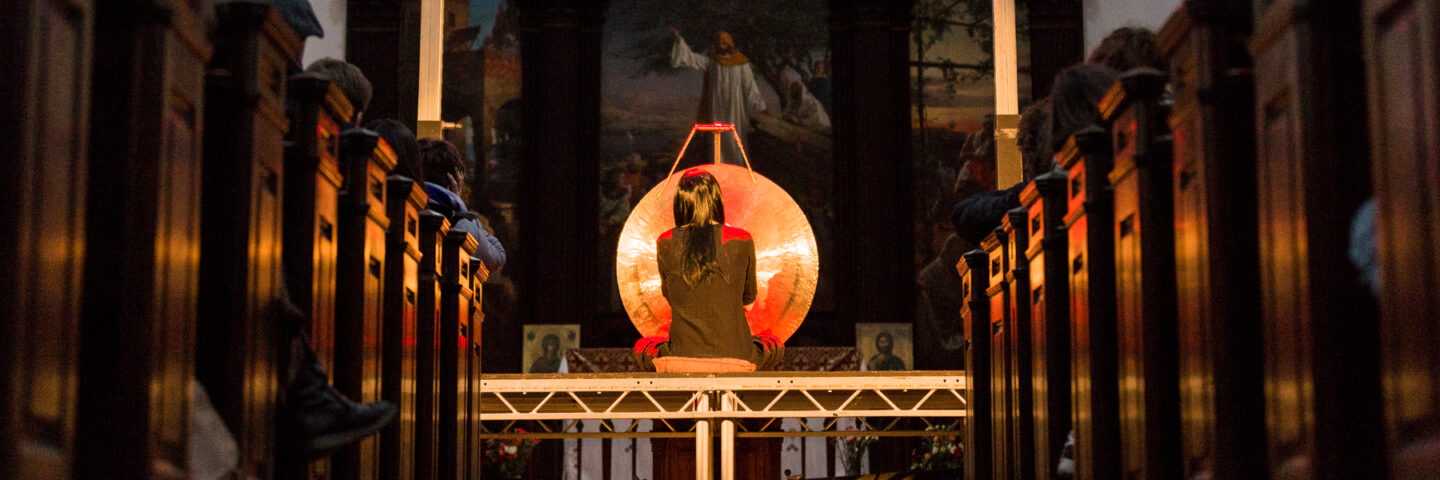Curatorial Policy

Submerge Curatorial Policy
A playground for experimental artistic practices that challenge the status quo.
Submerge is curated by invitation only; programming decisions are led by Artistic Director Mike Pony. Commissions and offers to show work at our biennial festival are made directly to artists and companies where we feel there may be a clear match with the values, goals and priorities of the organisation.
DARING
Submerge is interested in courageous and boundary-pushing artists and artistic practices which don’t fit into conventional presenting contexts. As well as in arts venues, theatres, music venues and galleries we present artistic works within non-institutional spaces such as clubs, on the street, in warehouses or in shopping malls, making the work more accessible to people who may not often attend galleries or theatres. We believe that creating space for radical and experimental artistic practice in the UK is deeply important, contributing to creative dialogue, inspiring local artists and audiences and challenging the status quo. We try not present work that has previously toured in the UK unless it has been significantly changed or developed, or it has gained new relevance through its cultural context or themes.
INTERNATIONAL
Submerge bring small to mid-scale international work to Greater Manchester. The programme features artists from the UK but is more heavily balanced in favour of international practice. We try and foreground work that isn’t often seen in the UK, making space for overlooked artists whose work might not be seen otherwise, as well as ensuring that major international projects also find a home in our programme.
INTERSECTIONAL
Submerge is a queer and disability-led organisation. The practices we support through our producing, talent development programme and biennial festival are viewed through an intersectional lens. We platform under-represented voices with the potential to create positive change. We are interested in artists whose work question’s the bases, roots, behaviours, ways of thinking, and the culture we live in. We see our work as facilitators of the creative disruption of normative pressures and binary thinking, uncovering that which has been hidden and seeking new and improved modes of being, thinking, and creating. You don’t have to identify a certain way to be part of the festival, but the work we are most interested in is responsive to, and carefully critical of mainstream thinking.
INNOVATIVE
Submerge doesn’t commission or programme shows from repertory theatre or the playwright/director system. We tend not to include work that uses naturalistic modes of performance or “acting” and we try not to programme traditionally seated “theatre” shows unless the form, context and content is meaningful or radical in relation to our current concerns. We recognise that theatre is a broad term and has different meanings across the globe; as such we are sometimes interested in theatre that is experimental, live art focussed, site-responsive or site-specific. We are also interested in participatory performance, and work that engages with immersive and experiential techniques.
CROSS-GENRE
The work we support comes from a broad range of artistic disciplines, often combining elements of liveart, body-based practice, visual arts, dance, sound art, installation, light, club performance, electronic music, immersive technique, audio-visual and digital practice. We thrive on work that is visceral, immersive and experimental.
UNDERGROUND
Submerge are interested in developing pathways between the underground and the mainstream. Nightlife contexts are often the first place artists are able to experiment with making radical work, and these environments are often the playground for wild ideas which are free from institutional restraints. For this reason our early career artist opportunities are often aimed at developing artists working in club, cabaret and nightlife contexts.
COLLABORATIVE
Submerge work closely in partnerships with a number of venues and cultural organisations in Manchester, complimenting but not replicating each other’s programming. We recognise good work when we see it, and for this reason our curatorial policy remains fluid. Sometimes we make exceptions to our programming for things we deem important and brilliant, as long as they fit with our values and politics.